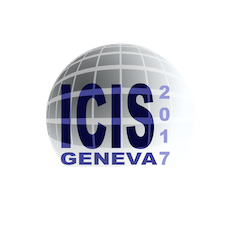Speaker
Description
The instrumented calorimeter STRIKE (Short-Time Retractable Instrumented Kalorimeter Experiment) has been designed with the main purpose of characterizing the SPIDER negative ion beam in terms of beam uniformity and divergence during short pulse operations. STRIKE is made of 16 1D Carbon Fibre Composite (CFC) tiles, intercepting the whole beam and observed on the rear side by infrared (IR) cameras.
As the front observation is not convenient, it is necessary to solve an inverse non-linear problem to determine the energy flux profile impinging on the calorimeter, starting from the 2D temperature pattern measured on the rear side of the tiles.
Most of the conventional methods used to evaluate the inverse heat flux are unbearably time consuming, so the need to have a ready-to-go instrument to understand the beam condition while operating SPIDER becomes stringent.
The present contribution demonstrates that, once properly trained, the neural networks provide a fast evaluation of the impinging flux, within seconds. Furthermore, they do not need to optimize any parameters as this operation is already included in the self-adjustment of the network weights during the training.
The neural networks are also capable of dealing with non-linearity and non-stationarity of the impinging heat fluxes.
The method has been trained and tested with stationary and non-stationary heat fluxes, showing to be a reliable tool for STRIKE real time operation.




